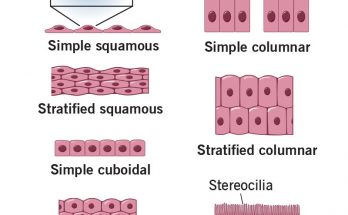Have you ever run around during recess and felt like you needed to stop and catch your breath? Or maybe after playing your favourite sport, you’ve noticed you’re breathing really fast? That’s because your body is doing something pretty awesome – it’s working hard to give you the energy you need to keep playing and having fun! Let’s explore the amazing reasons behind why we get out of breath when we exercise.
Why Do We Breathe Harder When We Exercise?
You’ve probably noticed that when you’re resting, your breathing is slow and easy, but as soon as you start to run or play, your breaths become quick and deep. That’s because when your body moves faster, it’s like a car that needs more fuel to speed up. For us, the ‘fuel’ is oxygen, and our body gets it by breathing.
When we exercise, our body’s demand for oxygen goes way up because our muscles are working hard and need more ‘fuel’ to keep going. Our body is super smart, so it starts to breathe harder and faster to get more oxygen inside. This is also why we can sometimes feel our heart pounding – it’s working hard to pump all that oxygen-rich blood to our hungry muscles!
Now that you’ve got a sneak peek into why we breathe harder when we exercise, let’s dive into the amazing details of how our body manages this increased need for oxygen!
The Increased Demand for Oxygen
Our bodies are like complex machines, and oxygen is the fuel that keeps them going, especially when we’re active.
- Muscle Oxygen Consumption- Think of your muscles as tiny engines that burn fuel to move. This fuel is made by mixing oxygen with something called glucose, which comes from the food you eat. Inside each muscle cell are tiny power plants called mitochondria where this fuel-burning process, known as oxidative phosphorylation, takes place. When you exercise, these tiny engines run faster, demanding more oxygen to keep up with your movement.
- Respiratory Rate Increases- To meet your muscles’ call for more oxygen, your lungs start to work overtime. You breathe faster and deeper, a bit like filling up a big balloon quickly. This ensures you have enough oxygen in your blood to power your muscles.
- Cardiovascular Response- Your heart joins in on the action by beating faster. This is its way of quickly sending the oxygen-loaded blood zooming through your body to your muscles that are eagerly waiting for it. Also, the blood highways, called blood vessels, widen a process called vasodilation, making it easier for all that blood to reach the muscle cells.
The Role of Carbon Dioxide in Breathlessness
- Just like a car exhaust expels fumes, your muscles produce waste gas, carbon dioxide (CO2), when they use oxygen. This gas needs to be cleared out fast, and that’s another reason why you breathe quicker when you exercise – to blow out the CO2 as fast as your muscles make it.
The Lactic Acid Factor
- Sometimes, when you’re really pushing it, like sprinting or lifting something heavy, your muscles might not get all the oxygen they need quick enough. So they switch to a backup power generation method that doesn’t use oxygen, called anaerobic metabolism. This process creates lactic acid. Too much lactic acid can make your muscles feel tired and achy, and it’s partly why you feel so breathless after intense exercise.
The Recovery Phase- Catching Your Breath
- Once you stop exercising, your body doesn’t just go back to normal straight away. It enters a phase called excess post-exercise oxygen consumption (EPOC). Think of it as your body’s way of ‘cooling down.’ During EPOC, your body uses extra oxygen to-
- Refill Oxygen Levels- Just like refuelling a car, your body tops up the oxygen levels that were used up during exercise.
- Turn Lactic Acid into Energy- That lactic acid isn’t wasted. Your liver converts it back into glucose, which can be used for energy later on.
- Repair and Reload- Your muscles get repaired, and your energy stores are restocked during this time.
Physiological Benefits of Regular Exercise
Regular physical activity strengthens the respiratory muscles, increases lung capacity, and improves the efficiency of the cardiovascular system. Over time, the body becomes better at oxygenating blood and removing CO2, even during exercise.
When to Be Concerned About Breathlessness
While it’s normal to feel breathless during physical exertion, it’s important to pay attention to your body’s signals. If breathlessness is accompanied by chest pain, fainting, or prolonged fatigue, medical attention should be sought to rule out any underlying conditions.
Next time you’re out of breath during a game or exercise, remember what’s happening inside your body. Think of all that oxygen zooming to your muscles and the CO2 being shown at the exit door. It’s pretty amazing what our bodies can do when we’re just having fun!
